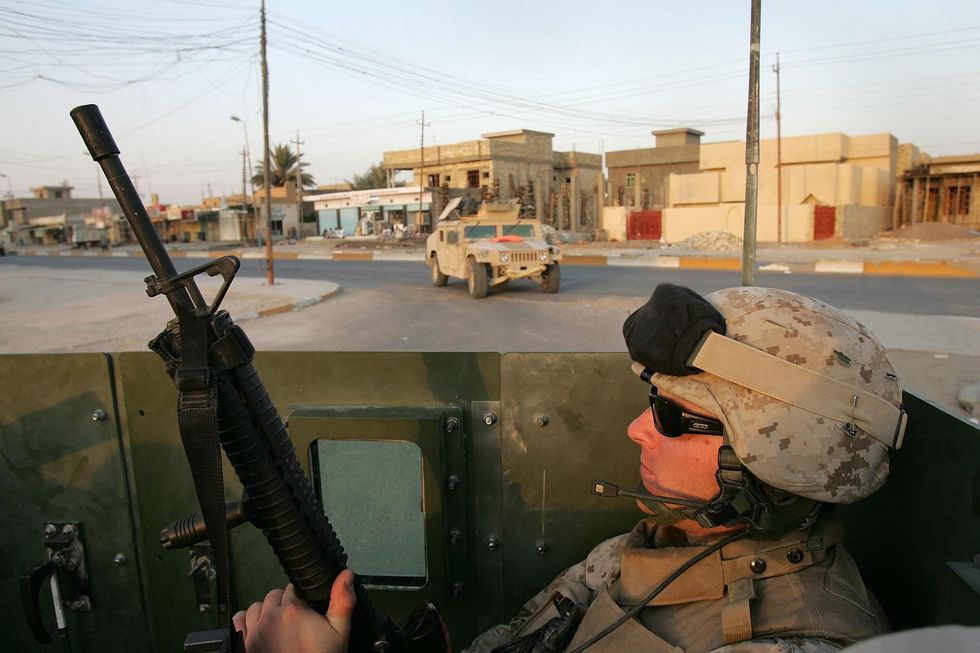
West Virginians stationed overseas are now able to vote on their smartphones, thanks to new technology. The election process will be implemented in 24 counties for the November midterms. (John Moore/Getty Images)

West Virginia is allowing military personnel and overseas voters to cast absentee ballots via smartphone in 24 counties using an app, becoming the first state in the U.S. to allow the blockchain technology in its elections.
After testing a pilot project using an absentee voting app in two counties during the May primary this year, officials found the app's security to be strong enough to expand the option to 24 of 55 counties for the Nov. 6 general election. Ballots have already rolled in since early voting opened on Friday, submitted from West Virginians stationed in Israel, New Zealand, Canada, and the United Kingdom.
Development of the app, called Voatz, was supplied by Tusk Montgomery Philanthropies and founded by venture capitalist Bradley Tusk.
"Democracy would work a lot better if more people can vote," Tusk told West Virginia's MetroNews.
In a news release from Secretary of State Mac Warner on Thursday, the agency explained that "according to the U.S. Elections Assistance Commission, nearly 300,000 overseas voters requested ballots but were not able to return them to their county clerks back home in the 2016 elections."
Warner vowed to fix that problem for West Virginian expatriates.
"I knew that we could do better to provide West Virginia military personnel all over the world with the opportunity to vote," he said. "As Secretary of State, I was now in a position to do something about that.
"So, I put together a team of staff members from our Elections and Technology Divisions to explore how we could address that challenge."
Security experts are beyond skeptical of the initiative. Joseph Lorenzo Hall, chief technologist at the Center for Democracy and Technology told CNN, "Mobile voting is a horrific idea. It's internet voting on people's horribly secured devices, over our horrible networks, to servers that are very difficult to secure without a physical paper record of the vote."
Georgia Institute of Technology cybersecurity professor Richard DeMillo told Bloomberg that paper ballots are "absolutely the safest way" to be assured of election results.
"All this fancy stuff — you are talking to a computer scientist, and it breaks my heart to say this — but it just drives up the cost and doesn't add anything," he warned.
But MIT political science professor Charles Stewart III gave West Virginia credit for being "the bold ones" to launch the initiative. He told CNN that while he didn't believe mobile voting was ready for prime time.
"There is something to be said sometimes for small scale pilots where we can learn trade-offs," he said.